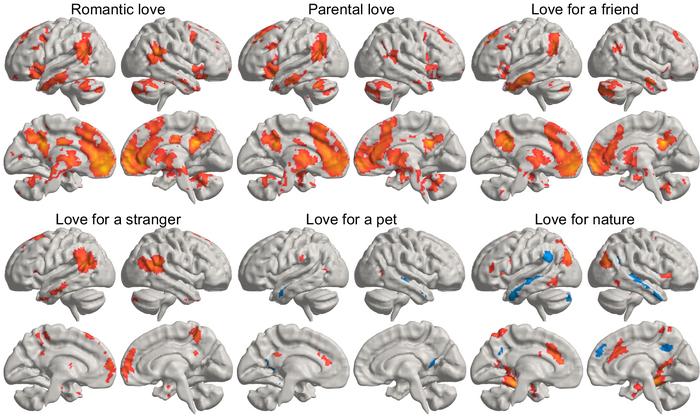Scientists identify six different forms of love by studying how they change our brains
Scientists make surprising discovery about brain activation in response to feeling love for pets
Your support helps us to tell the story
From reproductive rights to climate change to Big Tech, The Independent is on the ground when the story is developing. Whether it's investigating the financials of Elon Musk's pro-Trump PAC or producing our latest documentary, 'The A Word', which shines a light on the American women fighting for reproductive rights, we know how important it is to parse out the facts from the messaging.
At such a critical moment in US history, we need reporters on the ground. Your donation allows us to keep sending journalists to speak to both sides of the story.
The Independent is trusted by Americans across the entire political spectrum. And unlike many other quality news outlets, we choose not to lock Americans out of our reporting and analysis with paywalls. We believe quality journalism should be available to everyone, paid for by those who can afford it.
Your support makes all the difference.There are at least six different types of love that light up different parts of the brain, comprehensive new scans have revealed.
The word “love” is used to describe a range of contexts from sexual adoration to parental or pet love, or even the love of nature.
Now a new study, published on Monday in the journal Cerebral Cortex, revealed that the same word activated different parts of the brain depending on the type of human experience.
Scientists presented several simple scenarios to 55 parents, who all described themselves as being in a loving relationship.
Researchers used MRI brain scans to measure the participants’ brain activity as they mulled stories related to six different types of love, including for romantic partners, friends, strangers, pets and nature.

For instance, one of the prompts presented to the participants involved them recollecting seeing their baby for the first time.
“You see your newborn child for the first time. The baby is soft, healthy and hearty – your life’s greatest wonder. You feel love for the little one,” researchers presented as one of the scenarios.
Such activations in response to feelings of love were compared in the study with neutral stories in which very little happened.
Scientists found that love for one’s children generated the most intense brain activity, closely followed by romantic love.
“In parental love, there was activation deep in the brain’s reward system,” study co-author Pärttyli Rinne from Aalto University said, adding that such intense brain activity “was not seen for any other kind of love”.
Surprisingly, all types of love between people seemed to activate the same brain irrespective of the closeness of the relationship, but differing only in the intensity of brain activation.
Compassionate love for strangers, the study found, was less rewarding and caused less brain activation than love in close relationships.
The love of nature activated the brain’s reward system and visual areas, but not the social brain areas.
These findings suggest brain activity in response to feelings of love is influenced not only by the closeness of the object but also by whether it is a human being, another species, or nature.
For pet owners, when prompted to think about spending time with their furry companions, brain areas associated with feelings of sociality seemed to be activated more than those that light up to thoughts of nature.
“We now provide a more comprehensive picture of the brain activity associated with different types of love than previous research,” Dr Rinne said.

Join our commenting forum
Join thought-provoking conversations, follow other Independent readers and see their replies
Comments